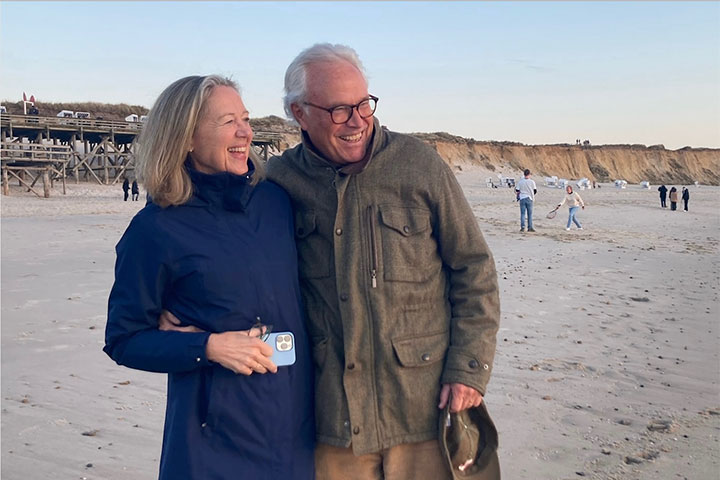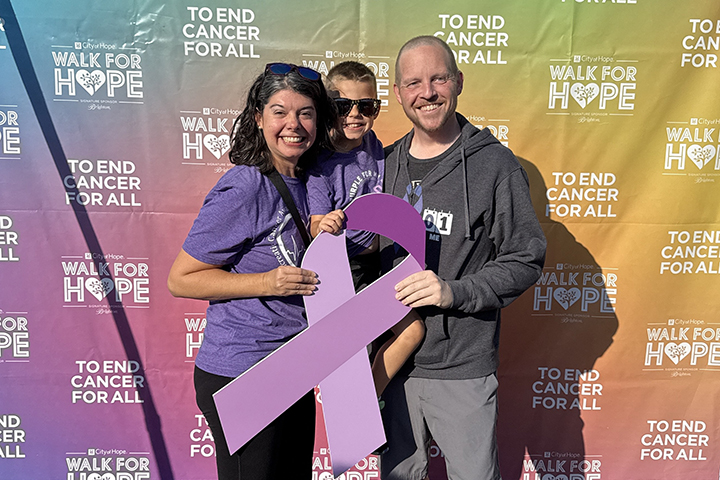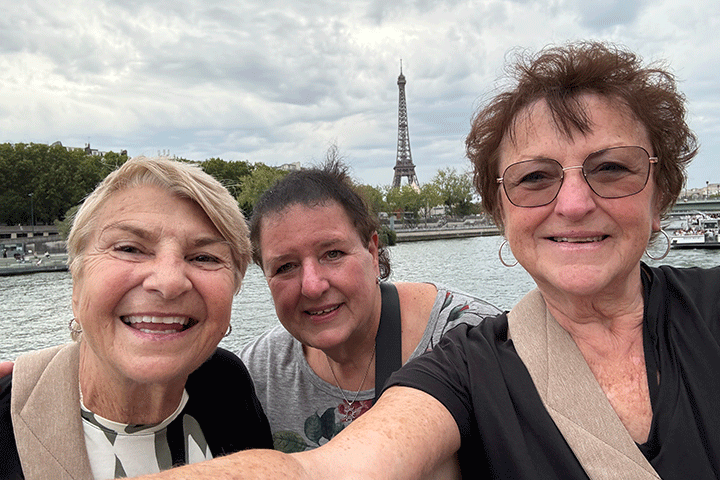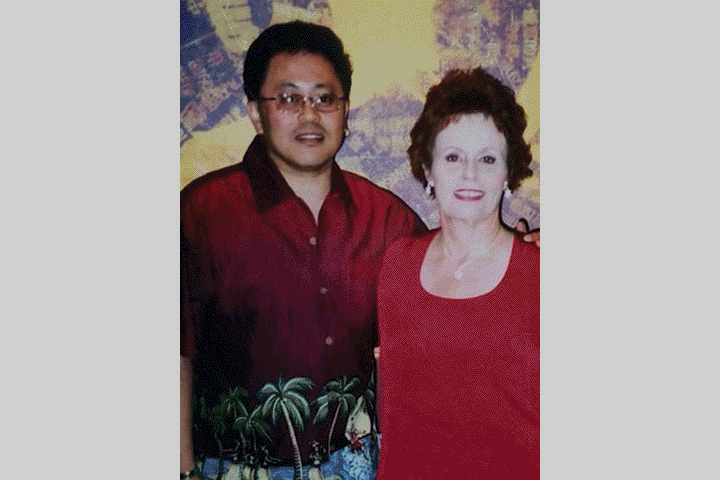Advances in Treatment Give Me Hope

- Locally advanced tumor wrapped around celiac artery
- FOLFIRINOX chemotherapy
- Stereotactic body radiation therapy (SBRT) knocks out the tumor
- MRI-LINAC for possible recurrence
I got married again in 2018 at the age of 62, but our honeymoon didn’t last long.
I was a widow, having lost my husband of 30 years to chronic myeloid leukemia in 2010. I was fortunate and met a wonderful man who had sadly lost his wife of 40 years to breast cancer in 2011. In July 2018, shortly after our wedding, I began experiencing pain in my upper abdomen and across my back. It got worse very fast.
I got in touch with my general practitioner who, after trying a few medications and tests, ordered a CT scan. She called the next day to tell me that I had a mass on my pancreas. At this point I had been married for six weeks.
Inoperable Tumor
We immediately called Dr. Jeff Wisch who, coincidentally, had treated both of our late spouses at Mass General Cancer Center at Newton-Wellesley Hospital (Newton, Massachusetts). We had not been in touch with him for several years, and in that time, unbeknownst to us, he had moved to Dana-Farber Cancer Institute (Boston) as a senior physician in its Gastrointestinal Cancer Treatment Center. He saw us the very next morning. My tumor was locally advanced, as it was wrapped around my celiac artery, and I was inoperable. The plan was to begin FOLFIRINOX chemotherapy with the hope of knocking it back enough to operate.
After three months of the biweekly chemotherapy treatment I was told that my tumor remained inoperable. So I continued with three more months of the same treatment.
Treatment Complications
During treatment, there were complications with blood clots, which landed me in the hospital three times. I developed neuropathy in my feet and fingers. Dr. Wisch reduced one of the drugs in my cocktail to curtail it from getting any worse. My tumor was still inoperable at the end of six months of chemotherapy. I was offered radiation, but it was considered palliative.
I was exhausted from treatment, and since the radiation couldn’t cure me, I told Dr. Wisch I needed to think about whether I wanted to continue. That was February of 2019, the lowest point of my journey.
A Glimmer of Hope
Soon after that conversation with Dr. Wisch, he called back to tell me about Dr. Christopher Crane, a radiation oncologist at Memorial Sloan Kettering Cancer Center (MSKCC) in New York City, who was having very good results with a CT-guided stereotactic body radiation therapy (SBRT), a new form of high-dose radiation therapy. Fortunately, the chemo I received had knocked my CA 19-9 tumor marker back enough that Dr. Crane would be able to treat me. This was the first glimmer of hope we received since my diagnosis.
In March 2019, my husband and I spent five weeks in New York City for my radiation treatment. I underwent treatment five days a week (Monday through Friday) with weekends off. This treatment, along with capecitabine, an oral chemotherapy, proved successful at keeping my cancer at bay. It was explained to us that although my tumor is still there, it is virtually dead. And my CA 19-9 has been in the normal range ever since.
Maintaining My Health
It has been five years since my initial diagnosis. I have a CT scan every three months at Dana-Farber, and my care has been taken over by Dr. James Cleary following Dr. Wisch’s retirement in 2021. I remain in the best of hands and at the cutting edge of advancements.
In June 2022 I had a new type of radiation treatment called MRI-guided linear accelerator (MRI-LINAC) at Dana-Farber to treat my left periaortic lymph node, which my team had been watching. This time I received the same amount of radiation in five days that I had previously received in five weeks. The advancements with radiation therapy for pancreatic cancer are truly amazing.
After four years, my port was removed in November 2022. This was such a relief because it meant I no longer needed to worry about blood clots. Also, and more importantly, it represents the fact that my doctors think they will no longer need to use chemotherapy to treat my cancer. As things crop up with my disease, the high-dose pinpoint radiation I have received seems to do a great job in knocking the cancer back.
Moving Forward with Hope
Since finishing radiation treatment at MSKCC in April 2019 I have felt completely well and have enjoyed the highest quality of life. I am deeply grateful to my doctors, who continue to monitor me closely. I am hopeful that whatever crops up next, there will be more tools in their arsenal to fight my pancreatic cancer.
I have heard that there are more therapies coming along. There are big changes on the horizon for treating pancreatic cancer. We all just have to keep hanging on and doing well to benefit from the advancements.





